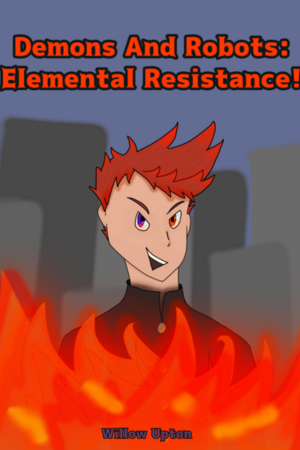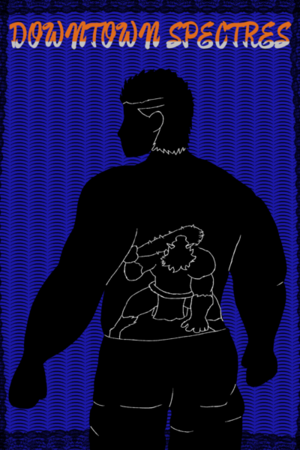Chapter 15:
The Sermon
Travelogue of an Apostate
A long brick tunnel lay beyond the gate to Centa Muis. The light at the end of the tunnel shined brighter than the afternoon sun they had just left behind.
“Finally,” Ariadne gasped and clung to her husband. “We’re here, dear.”
“Have you been to the city before, Mage Lavenza?” Old Calvin asked. “You seem pretty familiar.”
“Once or twice,” said Lavenza. “Oh, that reminds me. One thing Old Calvin, if you could please.”
“Yes?”
“Now that we’re surrounded by others, address me as you would an apostate.”
“…Why would I do that?”
“Because I am an apostate.”
Old Calvin raised an eyebrow.
“…You’ve never corrected me before.”
“It was unnecessary then,” Lavenza shrugged. “There are mages in Centa Muis still. Some may recognize me. I would prefer not to have to explain the misunderstanding to them.”
“Lavenza. Apostasy is reserved for serious magical crimes,” Old Calvin muttered.
“I’m aware. Are you telling me this because you are concerned for Deme?”
Old Calvin bit his lip. In spite of his weak joints, he trotted closer to Lavenza, to a distance where Deme, who stayed behind to chat with Samuel about a trip to the nearest forge, could not hear his whispers.
“She is an earnest girl, with the work ethic greater than blacksmiths decades her age,” Old Calvin said. “This search for Rafta is a waste of her time. She should be leaving for The Opposing Shore with us."
“She wishes to search for Rafta.”
“That’s because she hasn’t been told that she will never find it!” Old Calvin groaned. “I have not the heart to tell her.”
“You claimed to have worked with it, blacksmith.”
“Hundreds of years ago!” Old Calvin hissed. “Blacksmiths, adventurers, dwarves, demonkind and their empires of stone. Everyone has ravaged the Abyss for any trace of The Withering Flower. You believe there remains a portion of the depths not yet scoured?”
“It’s a weed, blacksmith,” Lavenza said. “Where there is the Abyss, the weeds of Rafta shall grow. Deme stays with me.”
“Is that her choice or yours?” Old Calvin’s stare grew cold. “I have watched you over the past few weeks, Apostate Lavenza. You made no attempt to speak with any of us. You’ve avoided us.”
“We are companions of happenstance, blacksmith.”
“Be that as it may, at least Deme understands that fellow travelers aren’t meant to be complete strangers. You look as if you can’t stand the sight of us. Sometimes, it’s like we aren’t even there.”
“If I’ve offended you, then I apologize.”
Old Calvin grumbled an incoherent reply, but did not pursue her further. The old man was not the argumentative sort.
“If you will allow me,” he said instead, “I will ask Deme to accompany me to The Opposing Shore.”
“She’ll say no.”
“Still, she should be given a choice in the matter.”
“If you feel that strongly, then be my guest,” Lavenza sighed. “But don’t mistake me for some kidnapper, blacksmith. I have not forced Deme into anything.”
“That’s hard to believe when you forced that vow upon me.”
“The truth incantation?” Lavenza asked. “That does make me look suspicious, I suppose.”
“That’s it?” Old Calvin scoffed. “No rebuttal?”
“It may not surprise you, blacksmith, but I do not mind if you think little of me.”
The light at the end of the arch tunnel brightened. It came from the gleam of white limestone and alabaster. Then came the sound of Centa Muis, the cacophony of market stalls, the squawking of seagulls, orators in the plaza, marching soldiers and trotting horses. All of it burgeoned into a clamor.
The path forked before Lavenza and Old Calvin. To the left rose cobblestone steps that paved the way to an acropolis. The path to the right was flanked by merchant stalls and inns. From there wafted the aroma of steamed buns and roasted meat strong enough to ward away the pungent smell of horse.
The road down the center led west to the harbor. The persistent smell of salt, mixed with an acrid odor from the burning of charcoal, breathed along the wind. Another waiting line formed further down the center road at the beginning of a winding slope. A ship lay moored at the end of the path. It was clad in steel and exhaled fumes from thick smokestacks above the deck.
“Is that our ship?” Ariadne asked. “Should we get in line?”
“The line looks pretty long,” Samuel muttered.
“You won’t get aboard that one,” Lavenza said. “For now, let’s find somewhere to stay.”
Lavenza led them through the markets to the right. Despite the raucous noise, most of the vendors had very little to sell. Merchants displayed what dwindling stocks remained. The stalls with the most activity were charity stands that handed out porridge for free.
Where did the smell of roasted meat come from, then?
It came from the taverns. Great cheer and merry could be heard within. Lavenza ignored those establishments; they were bound to be crowded. They moved deeper into the market district until they reached a plaza at the end of the stretch. An unassuming two-storied inn with a single lamp hanging above its garden sat on the other side of the square. Lavenza decided that’s where they would stay the night.
To reach it, they had to cross the plaza, which today was occupied by a sizable audience. Robed, hooded men stood above an elevated stage, hands folded behind their backs, silver necklaces dangling from their necks. A man dressed in similar garb stood ahead of the rest. His hood was drawn back to reveal black hair and a pale, chiseled face. He gestured to the audience with open palms.
“I’ve seen enough ships sail into the beyond and disappear,” the orator cried. “Think about it, my friends. You can build a small city for every imperial ship constructed to cross The Great Sea. How have none of them returned?”
“Who are they?” Old Calvin asked.
“Members of the Andari,” Lavenza answered. “They’re what’s left of religion in Centa Muis.”
“Wait,” Ariadne called from behind them. “I want to listen.”
“And why are we turning our backs on life itself?” the man motioned to the sun overhead. “The Endire has fattened our harvests and blessed our children. In its final moments, you would think to flee and abandon your ancestor? No. We must not. You all, who come to Centa Muis, salvation does not exist across The Great Sea. Nothing lies beyond it. Your salvation is here!”
“A death cult,” Old Calvin murmured.
“B-but he makes a good point,” Ariadne rebutted. “'Tis true, isn’t it? That none of the ships return?”
“It’s a long journey to The Opposing Shore, Ariadne,” the old man replied.
“You’ve never been,” she snapped. "How would you know?”
“Well—”
Similar arguments among friends, even family, echoed throughout the audience. The orator flattened his palms to gesture his audience to simmer down.
“My friends, skepticism is a virtue,” he smiled. “To those who doubt my words, I welcome you, but your doubts must be applied with equal intensity to all the assumptions of our lives. We are all here, for instance, for one reason and one reason only. Tell me, any of you, why are we here?”
When no clear, uniform answer appeared, the man spelled it out.
“Is it not because we are all doomed when the Endire fades?” he said. “You’ve heard the tales. When the Endire disappears, the skies will darken. A great cold will permeate the land. And then comes the petrification, the moment when we who remain all turn to stone. This is why you are here, is it not? Who wishes to be turned to stone?”
“Haven’t you heard enough, dear?” Samuel asked.
“No,” Ariadne shook her head. “He's yet to make his point.”
“The Opposing Shore offers only a convenient escape!” the man declared, hammering his palm with his fist. “It is a leap of faith spanning all of The Great Sea. This description of the end of the world. It’s too precise. It’s too clear. How can anyone, even Her Royal Highness, attest to what will happen when the Endire vanishes? You think she’s foreseen it? No. Not even a mage possesses such clairvoyance. How does one know that the skies will darken, that a great cold will descend, that we will all turn to stone, in that precise order? The answer, my friends, is simple. They do not know.”
“We’re leaving,” Lavenza said.
“I’m staying,” Ariadne whispered.
“Ariadne!” Old Calvin gasped. “Surely you don’t mean to listen to this nonsense!”
“When you’re finished, come join us at the inn at the other end of the plaza,” Lavenza pointed. “Deme, get back on the wagon. We’re moving through the crowd.”
“I’ll stay with her,” Samuel mumbled. “We’ll catch up with you.”
“We’re just going to leave her behind?” Deme said as they left.
“She says she wants to stay,” Lavenza shrugged, “and she knows where we’re headed now. We’re not in the wilderness anymore.”
“What will happen, when the time comes?” the orator licked his lips. “We Andari do not profess to know the exactitude of the end! Instead, I merely instill in you common knowledge that we all know, common knowledge like Akansha, the three primal states of the Endire.”
“Physical! Spatial! Spiritual!” the orator continued. “Don’t you see everyone? The Endire didn’t just give us life. It handed us the blueprints for our own evolution! An earthly life is nothing compared to the spiritual journey waiting for us beyond the stars! The Endire is not dying. It is leading by example! When the Endire loses its physical form, we too will discard our bodies and follow our sun towards a planar existence beyond Aparthia!”
Lavenza pushed through the plaza. It helped that people had no choice but to make way for three horses and a pair of wagons. Many in the crowd look unconvinced by the orator. Maybe they had gathered because they were bored and were looking for a fun time. Disappointed, they would retreat to the nearest tavern and share jokes over several mugs. The Andari would find few followers this way.
The apostate’s gaze drifted behind her. Samuel and Ariadne stood there amongst the crowd. Samuel wore a worried look, gentle eyes sailing beneath a furrowed brow. His calloused hands rested on his wife’s shoulder while he whispered into her ear.
But Ariadne was not listening to him. She offered her hands towards the stage. Her eyes stayed pinned to the lips of the man orating the sermon, who continued to wax lyrical about Menuan traditions that he had appropriated and distorted. Ariadne did not know. She could not know. She was a simple woman with simple questions, like whether or not her child could truly be born among the stars.




Please sign in to leave a comment.